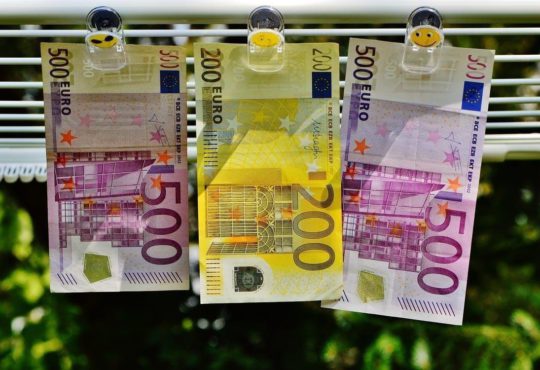The General Inspector of Financial Information ("GIIF") has published a report on the implementation of the Anti-Money Laundering and Countering the Financing of Terrorism Law of March 1, 2018 in 2020.
As in the previous year, this document does not contain much information in terms of the factoring industry. This is because it only contains the AML/CTF Law's definition of the term "non-other financial institutions." Such institutions should be considered to be "factoring companies, leasing companies (with respect to financial leasing), and entities whose core business is "advising business enterprises on capital structure, industrial strategy and related issues, as well as advice and services on mergers and acquisitions of business enterprises."
Other issues worth mentioning:
- First year of reporting on the new state of the law - 2020 was the first year to be fully reported under the new rules on how to report information on suprathreshold transactions to the GIIF. The previous 2 years, were transition periods after the 2018 rule change.
- First meeting of the EAG - 2020 held the first meeting of the Eurasian Group on Anti-Money Laundering.
- Increase in the number of GIIF notifications to the prosecutor's office about suspected crimes- referred, of course, to the offense provided for in Article 299 of the Criminal Code. The increase oscillated-about 18.1% for main notices compared to 2019, and about 15.1% for follow-up notices. Moreover, the number of blocked accounts also increased (by about 4.8% compared to 2019).
- Coronavirus pandemic - Due to the prevailing SARS-COV2 pandemic, it was impossible / difficult to continue conducting training courses on raising awareness of anti-money laundering and terrorist financing (which were carried out with the participation of the authorities).
- UEFIU Platform Meetings- As in the previous year, four meetings of the UE-FIU Platform were held, however, what was new compared to 2019 was their form - they were, with the exception of the meeting held in February, conducted by video conference.
- "One site visits".- i.e., the evaluators' local visits have been postponed by several months. The planned visit of evaluators to Poland has been postponed until 2021.
- Checks - The GIF conducted a total of 7 inspections in 2020, most of which were conducted at banks. Notaries or an investment fund company were also inspected. As a result of these, irregularities were revealed in the implementation by these entities of the obligations stipulated in the AML/CTF Act. And here we can distinguish not only formal deficiencies, but also substantive irregularities. Examples of the latter include the execution of transactions that could be related to a crime under Article 299 of the Criminal Code, failure to comply with the obligation to immediately block the account under Article 87(2) of the Act, or failure to comply with Article 34(1) of the AML/CTF Act, i.e. failure to apply financial security measures.
- Tax offenses of two Polish companies involved in car transport services- Facts: two Polish companies with headquarters outside the country. The accounts of these companies received funds from 2 entities-entity A and B. In total, over the past 3 years, these accounts were credited with an amount exceeding PLN 100 million. These funds were transferred between the accounts of the two companies, in order to be eventually transferred to the accounts of individuals - it is presumed that they were drivers providing transportation services. One of the banks holding accounts for these companies asked them for documents confirming their sources of income. In view of their inaction, the bank terminated their account agreements. The GIIF blocked the account of one of the aforementioned companies and sent a notice to the prosecutor's office.
- Money laundering by a group of foreigners - this case was initiated in 2020 on the GIIF's own initiative. Foreigners, more precisely, citizens of one of the Asian countries, used companies established on the territory of Poland as a so-called "metastasis entity", i.e. funds coming from abroad were distributed to Polish companies, then the funds were transferred to further beneficiaries without performing any tax actions. Due to the fact that there was no economic justification for the establishment of the companies in Poland and the lack of connections of these companies to the Polish market and, moreover, the proceeds came from entities not operating in the industries which were declared in the KRS, the GIIF notified the Public Prosecutor's Office. Significantly, the common denominator in the cases was the companies, whose company accounts were established in one of the bank branches by the same client advisor. This advisor only between April and June 2020 established accounts for 183 entities (including 47 companies managed by foreigners). The aforementioned bank employee, most likely, was able to draft and review account agreements without obtaining the appropriate approval.







